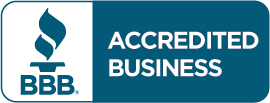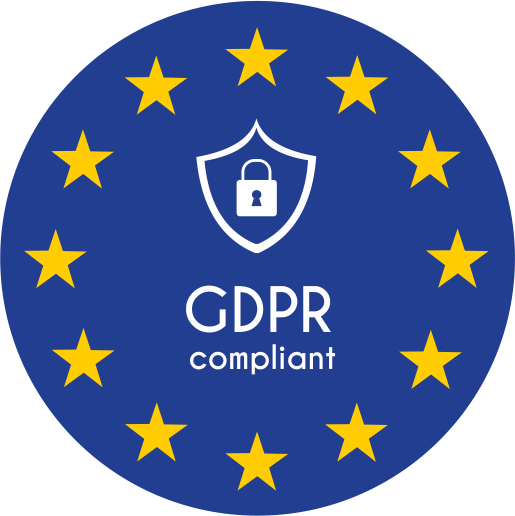by Charles Oropallo | Mar 13, 2019 | Do-It-Yourself, Domains, Internet, Monadnock Shopper News, Security, SEO, Shopper News, The CW Corner, Website Development, Website Updates, WordPress
Domain ownership is like home ownership. Domain fees are like home taxes. Stop paying taxes and see who really owns your home!
Domains are sold through hundreds of “domain registrars” around the world. It costs in excess of $50,000 to become a registrar. Registrars answer to ICANN (Internet Corporation for Assigned Names and Numbers). It maintains a database of all domains to ensure domains can’t be duplicated.
Most domains are registered by web development companies. Accepted common practice is to obtain domains for their client, set it up and build a website accessible with it.
Losing a domain can easily be avoided. Common reasons I have seen for folks to lose their domain names are as follows, in the most common order:
1. Renewals ending up in spam buckets or returned with dead/outdated email addresses.
2. Church parishioners/employees who have a falling out.
3. Business employees who move on regardless of circumstances.
Avoid Gmail, Yahoo or other “freebie emails” with your domain. You’ve ZERO control over and can’t even call them.
Seek out reputable web developers OUTSIDE your organization to handle your domain names. Avoid “one man shows” and startup developers. Use BBB accredited businesses who’ve been at it at least 10-20 years. They’ll likely look out for you and protect your domains.










by Charles Oropallo | Feb 13, 2019 | Email, Internet, Monadnock Shopper News, Security, Shopper News, The CW Corner, Website Development
Last week I wrote about possible dangers of “FREE” offerings.
While verbiage varies, the end result is the same if you follow their link: headaches of an unimaginable magnitude for you!
Here’s an example of many I see each day in our company emails:
____________________________________________
Dear charles@charlesworks.com ,
Your mailbox quota is full.
This may cause your mailbox to be disabled or you may no longer be able to receive more emails
to continue using your mailbox. You will need to upgrade your mailbox quota immediately. This service is free.
Re-update your account
Note: Failure to update your account might lead to permanent deactivation of your account.
Thanks,
The Security team. 2019
____________________________________________
Clicking lands you on an extremely convincing page. One wanting me to enter my email login information even had “© 2018 CharlesWorks” in it.
These work based on two principles: Offering the FREE “we’ll fix it” service and threat of imminent services loss. Together they convince you to bite. Especially that sense of urgency! Remember the world isn’t going to halt if you don’t act right away – it can wait until you deal with it properly.
Companies don’t have you “verify” your email account this way. If anything seems fishy concerning your email, call your email provider and ask for assistance. That’s what you pay them for!










by Charles Oropallo | Feb 6, 2019 | Do-It-Yourself, Internet, Monadnock Shopper News, Security, Shopper News, The CW Corner, Website Development, Website Updates, WordPress
It surprises me how many people still fall for anything with “FREE” attached to it. We shockingly still see “free counters” on many websites. They’ve been around as long as the web. Newbie web users still get fascinated by counters showing site visitor numbers.
There are problems with some freebies. If you visit a website and see that 3 people have visited it, that doesn’t exactly instill confidence in the site.
An aesthetic issue is that really nice, elegant looking websites don’t usually have counters. So site visitors aren’t distracted by traffic to the site. In fact, site counters are simply not that much in fashion these days.
Another problem is that many free counters are actually security risks. For an example, I recently read about a “Free SuperCounter Widget” that many have been using. It redirects site visitors to other sites (like dating and gambling and so on). So folks installing this counter were unwittingly sending site visitors away from their site.
Even more insidious is where the counter loads malware/viruses into the website – infecting site visitors as well.
The bottom line here: Yet another simple lesson about getting what you pay for. If your site has been infected, contact us or your developer for help.










by Charles Oropallo | Jan 23, 2019 | Domains, Internet, Monadnock Shopper News, Security, SEO, Shopper News, The CW Corner, Website Development, Website Updates, WordPress
Let’s broach the topic of SSL (Secure Socket Layers) and their importance on the web.
Using SSL is like sending certified mail through the post office. Mailing certified letters requires a signature by the receiver. The sender knows it got to the right place. SSL is instantaneous!
SSL is a security protocol (specified way of doing things) that helps guarantee that the browser you are typing information into is actually connecting with the website you believe you are connected to. This is extremely important when doing online banking, sharing private or personal information, or using your credit card. SSL is important regardless of the device (phone-tablet-laptop-computer) you’re using.
Besides ensuring you’re reaching the correct destination, SSL is MOST important when using devices through public WiFi (hotspots). They can be “snooped” by hackers. “Snooped” means hackers can sit in a parking lot near a place with WiFi and easily record all data communications happening. It is a hacker’s gold mine for people not security conscious.
Businesses expect to pay roughly $70-$199/year plus installation for SSL on a website. At CharlesWorks, it’s part of the hosting – with NO additional ongoing charges.
SSL is important! Feel free to contact us for more information.










by Charles Oropallo | Jan 16, 2019 | Email, Internet, Monadnock Shopper News, Security, Shopper News, The CW Corner
With 20+ years in the web business, scams and schemes to steal from people still amaze me.
Several web clients have made me aware of a scam to frighten them into making a bitcoin payment.
They’re from addresses like “Anonymous Hacker” or even your own email. Subjects are “You have been hacked” or similar. They gloat they’ve infected you through some (usually unsavory) site you visited. They explain how they did it in terms most folks don’t understand – making you think they are really an expert – and frighten you into believing they’re monitoring your computer.
They threaten to send very personal items and even videos of you to everyone you know unless you comply with the demand within some short time period. They warn if you report them, they’ll distribute the “dirt” on you immediately.
We try to force these messages to spam on our servers. Sometimes they get through. We reassure several people each week they are a scam because they usually are.
However, devices DO get hacked. If you truly believe you’ve been hacked, you should see your IT person or someone who specializes in “cleaning” computers ASAP. We can recommend folks who can help.










by Charles Oropallo | Jan 2, 2019 | Do-It-Yourself, Domains, Internet, Monadnock Shopper News, Security, SEO, Shopper News, The CW Corner, Website Development, Website Updates, WordPress
Customers want specific info about products and services. If there have been no changes since your website launched, they’ll look somewhere else.
New info triggers search engines to re-scan your website and index it according to what it sees as current and popular, relative to other websites in your industry. Distinctive and useful content helps the search engines recognize what your site is about. Posting new content on a regular basis gives the search engines a reason to scan your site more often.
Updating depends on your industry and who your competition is. The important thing is to review your site on a regular basis. We recommend a website review at least once a month.
Ensure your contact information up to date – nothing is worse than nonworking phone numbers or wrong hours. Your navigation hyperlinks all need to work as well. Good testimonials are an absolute plus. Noteworthy news posted can also help broadcasting your latest and greatest developments.
If you’re website doesn’t allow you to easily change the text in it, you should consider updating to one that will.
Keeping your website material up to date will help keep your current clients as well as add new ones.













 European Union General Data Protection Regulation Compliant
European Union General Data Protection Regulation Compliant